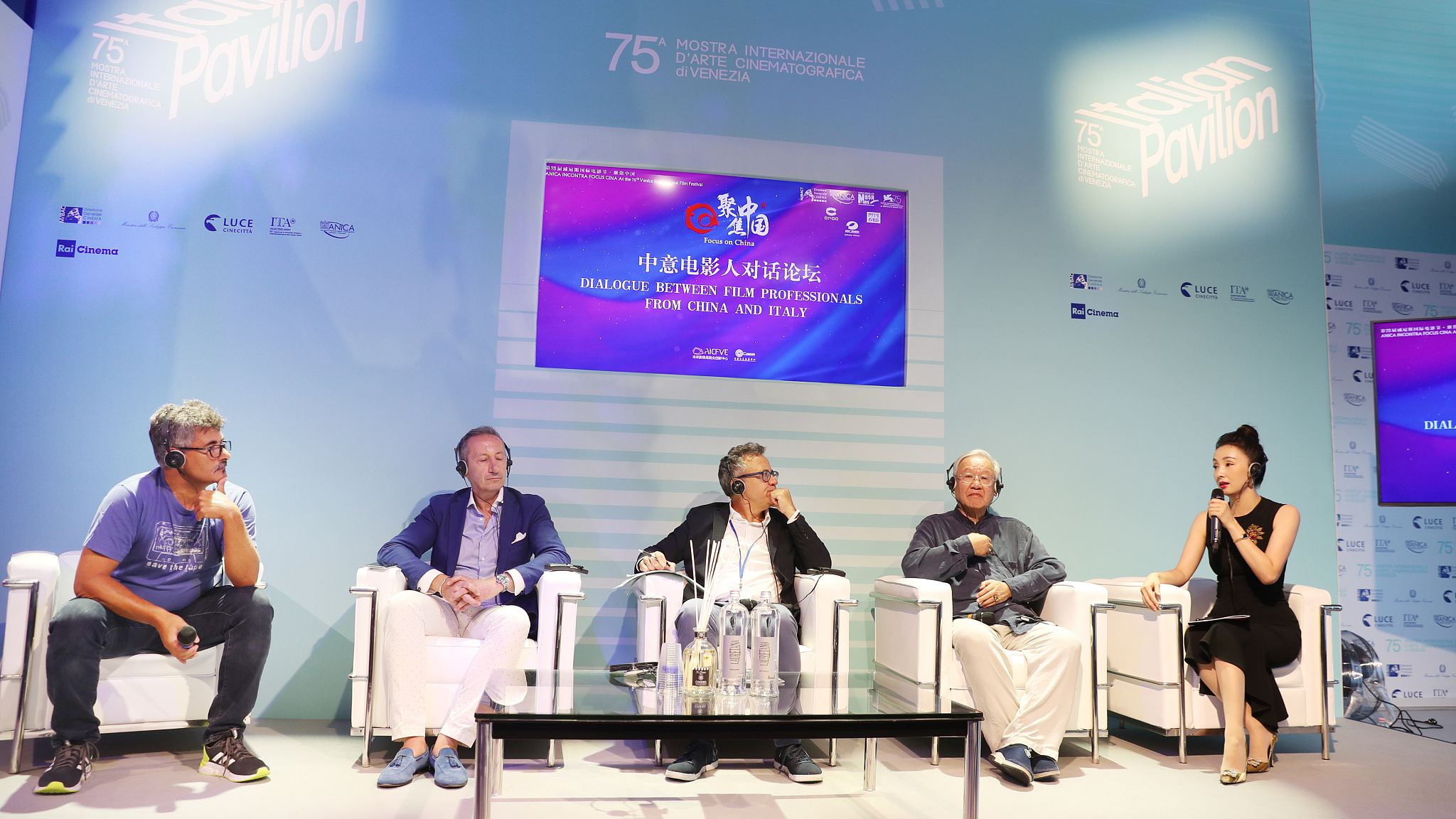
(Photo: CGTN)
Co-productions have been mooted as the way of the future for cooperation between Chinese and international filmmakers and producers.
The sentiments were expressed by veterans of the film industry during a Sino-Italian Co-Production Forum held at the Venice Film Festival, which ends this week.
"In a co-production, you have to find shared cultural elements, the shared visions and human experiences that make something work as a great story and as a great movie," said Ellen Eliasoph, producer of Zhang Yimou's new film “Ying (Shadow)”.
The movie will screen in Venice on September 6.
"Many of the Chinese popular movies are co-productions, but they are not advertised as such," she added.
The co-production aspect is the "technical expertise brought in by the partners, behind the camera, in the production design, visual effects, and post-production," Eliasoph said.
She is the CEO of Perfect Village Entertainment, an American-Chinese joint venture film and TV production company based in Beijing.
"We are entering the golden age of Chinese cinema and of co-productions," she said, adding that the Chinese audience is growing exponentially as more and more movie theaters open all over the country, attracting younger audiences," she noted.
These audiences, she went on, "are looking for something new and good – something that will resonate" with them.
"If the movie touches them in some way, Chinese audiences will go to see it at a movie theater," Eliaphson said. "I think the time is right for Italy and China to be working more closely together."
Chen Hongwei, vice president of Tencent Pictures, agreed that product and producers must get in tune with young audiences.
"We are all looking for good stories," he said, adding that his company, which was founded three years ago, has "tried to improve its content and quality by collaborating with Hollywood".
Chen said the relatively new company is expecting to learn from Italian peers, which have a long tradition of skills, craft and artistry.
Francesca Cima from Italian production company Indigo Film, which has produced Oscar-winning movies, said that "the historical moment favors meetings between different worlds."
"We certainly share a need and a curiosity for original stories," said Cima, who is the president of the producers' division of the Italian film industry association ANICA.
"The new audiences are curious, and they no longer fear languages different from their own."
Paolo Del Brocco, chief of the cinema division of RAI public broadcaster, said that in order to stimulate more Sino-Italian co-productions, Italian authors could bring their screenplays to Chinese producers. Enticing Chinese productions to shoot in the Mediterranean country is also an option.


